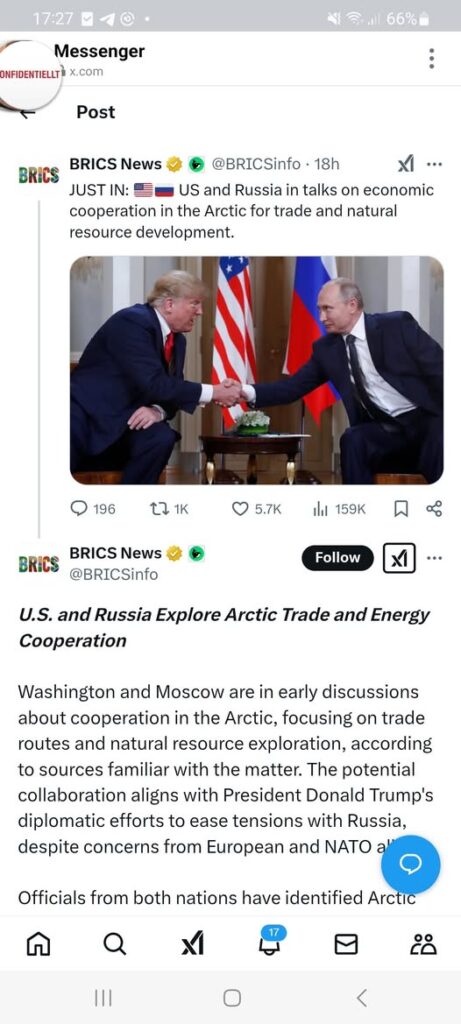USA & Ryssland I Arktis
2025-02-27

Washington and Moscow are in early discussions about cooperation in the Arctic, focusing on trade routes and natural resource exploration, according to sources familiar with the matter. The potential collaboration aligns with President Donald Trump's diplomatic efforts to ease tensions with Russia, despite concerns from European and NATO allies.
Officials from both nations have identified Arctic energy exploration and shipping lanes as key areas of interest. One U.S. official suggested that fostering Arctic engagement could help drive a wedge between Russia and China, which have strengthened ties in recent years. However, experts caution that such a strategy may have limited success, given their deepening economic and geopolitical alignment.
Amid these talks, U.S. and Russian officials are scheduled to meet in Istanbul on Thursday to discuss restoring embassy staffing levels, according to Russian Foreign Minister Sergei Lavrov.
The Arctic, which is bordered by Russia and seven NATO members including the U.S., Canada, Denmark, Finland, Iceland, Norway, and Sweden, has become an area of increasing geopolitical competition.
Kirill Dmitriev, head of the Russian Direct Investment Fund, recently indicated that Arctic energy projects were among the "specific areas of cooperation" discussed during U.S.-Russia talks in Saudi Arabia this month.
The Pentagon's latest Arctic Strategy, released last year, highlights concerns over Russia-China cooperation in the region. Under the Trump administration, the U.S. has focused on expanding military readiness and surveillance in response to Beijing and Moscow's growing alignment.
China, which declared itself a "near-Arctic state" in 2018, has been investing heavily in the region, pursuing fishing, energy, and transportation projects. Beijing views new Arctic shipping routes as a key part of its "Polar Silk Road," which aims to connect East Asia, Western Europe, and North America.
While U.S.-Russia Arctic cooperation could lead to new economic opportunities, the geopolitical stakes remain high. With NATO allies wary of Moscow, China expanding its Arctic ambitions, and the ongoing conflict in Ukraine, the future of these discussions remains uncertain.
Visa ditt stöd till det informationsarbete Carl genomför
Patreon
Swish

Scanna QR eller skicka till 076-118 25 68. Mottagare är Caroline Norberg.
